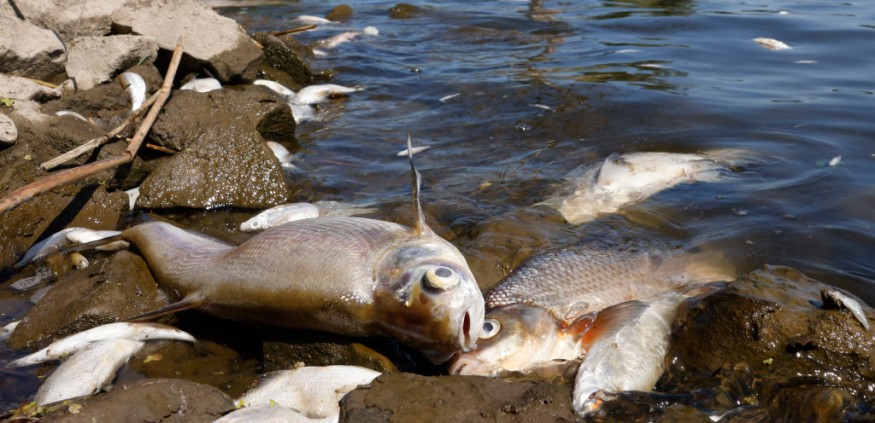
According to experts, incidents like the Louisiana fish kill may become more frequent as seas warm and oxygen levels drop in aquatic environments.
Fish Kill by Lack of Oxygen
near a pond near Prairieville, Louisiana, thousands of dead fish have been discovered. These fish are the victims of a phenomenon known as fish kill.
Less oxygen in the water makes it difficult for fish to breathe, according to Robbie Maxwell, a Louisiana Department of Wildlife and Fisheries inland fisheries technical advisor. Sometimes a fish kill is the result of only those still-hot days. Rainstorms can occasionally cause the water to flip over, causing even lower oxygen levels to emerge from the bottom.
Although fish kills are widespread, they are a very complicated event, LDWF says in its brochure discussing fish kills.
The fish kills are typically brought on by environmental changes rather than pollution.
This may entail the water losing oxygen or changing acidity or salinity. Even while each one of these elements alone might not be enough to kill millions of fish, when they all come into play, a lot of fish may perish, which can produce a startling image.
Overpopulation or an increase in toxins in the water may be to blame for the recent fish death in Louisiana, which was observed in a smaller pond. But a shortage of oxygen is the main cause of fish deaths in big quantities of water.
Algae Growth
Increased algal growth can result in lower water oxygen levels. Unhealthy algal blooms can result from an abundance of nutrients in the water. The decay of these blooms will then deplete the water's oxygen supply.
Marine life may suffocate as a result, which can be quite hazardous.
According to Julie Hagen, a representative for the Texas Parks and Wildlife Department's Coastal Fisheries Division, fish deaths like this occur often in the summer when temperatures rise. Fish cannot "breathe" if there is insufficient dissolved oxygen in the water. Low dissolved oxygen is frequently a natural occurrence.
Hagen emphasized that photosynthesis and aerobic respiration are responsible for daily fluctuations in the concentration of dissolved oxygen.
Hagen noted that the daytime rise in dissolved oxygen is due to photosynthesis, which is fueled by sunlight. While photosynthesis ceases at night and may slow down on overcast days, aquatic life continues to breathe and absorb free oxygen, lowering the concentration of dissolved oxygen, Newsweek reports.
Also Read : Illegal Shark Fin Shipment Seized in Brazil Weighs Over 30 Tons, Companies Slapped with Fine
Climate Change
According to Newsweek, if global warming increases, experts predict that fish fatalities might rise as a result of the warming water.
Specialists at NOAA's National Ocean Service said via USA Today that rising ocean temperatures resulting from climate change may exacerbate low oxygen conditions in areas of the US that are vulnerable to hypoxia and in extreme cases fish mortality, caused by extremely low oxygen.
Fish are endothermic, which means that the temperature of the water in which they are swimming is the same for them. According to Andre Boustany, global research director of the Monterey Bay Aquarium in California, when the water heats, the organisms' metabolism rises and they require more oxygen, USA Today reports.
Related Article : Faroe Islands Hunt 'Grindadráp' Continues with Bloody Shores from Over 500 Dolphins Slaughtered
© 2025 NatureWorldNews.com All rights reserved. Do not reproduce without permission.





